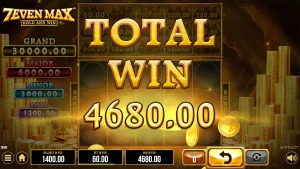The Evolution of Tekken A Historical Overview
Tekken is not just a fighting game; it’s a cultural phenomenon that has captivated audiences worldwide since its inception. With its rich storylines, diverse characters, and intricate fighting mechanics, Tekken has cemented its place in the pantheon of video games. This blog post will delve deep into the various aspects of Tekken, exploring its history, gameplay mechanics, character development, competitive scene, and its impact on gaming culture.
The Evolution of Tekken: A Historical Overview
The Tekken series began its journey in 1994 when Bandai Namco released the original Good88 game as an arcade title. Over the years, it has grown from a single arcade machine to a full-fledged franchise with multiple iterations across various platforms.
Origins and Early Years
When Tekken burst onto the scene, it was revolutionary for its time. With 3D graphics and polygonal character models, it set itself apart from contemporaries like Street Fighter.
The first game introduced players to a roster of unique fighters, each with distinct moves and backstories. Characters like Kazuya Mishima, Paul Phoenix, and Nina Williams became iconic and helped establish a narrative-driven experience in fighting games.
As Tekken evolved through sequels, new gameplay mechanics were introduced, including the ability to sidestep attacks, which added depth to combat strategies and created a more dynamic fighting environment.
Major Installments and Their Impact
With each installment, Tekken pushed the boundaries of technology and storytelling. Tekken 3, released in the late ’90s, is often hailed as one of the greatest fighting games of all time, featuring a robust character roster and refined gameplay mechanics.
Later entries, such as Tekken 5 and Tekken 7, leveraged advancements in hardware, resulting in stunning graphics and improved AI. Each release brought something new to the table, whether it was the introduction of new characters or enhanced online capabilities, ensuring the franchise’s longevity.
The Cultural Shift
As the franchise grew, so did its cultural relevance. Tekken became more than just a game; it transformed into a lifestyle for many fans. Merchandise, spin-offs, animated series, and even movies expanded the universe of Tekken beyond the screen.
- Winning Strategies for Heimdall’s Gate Slot - April 5, 2025
- Understanding the Core Mechanics of VeloruDialinvest International N.V. Game - March 31, 2025
- Strategies for Winning Big on The Alter Ego Slot - March 31, 2025




















































1 comment